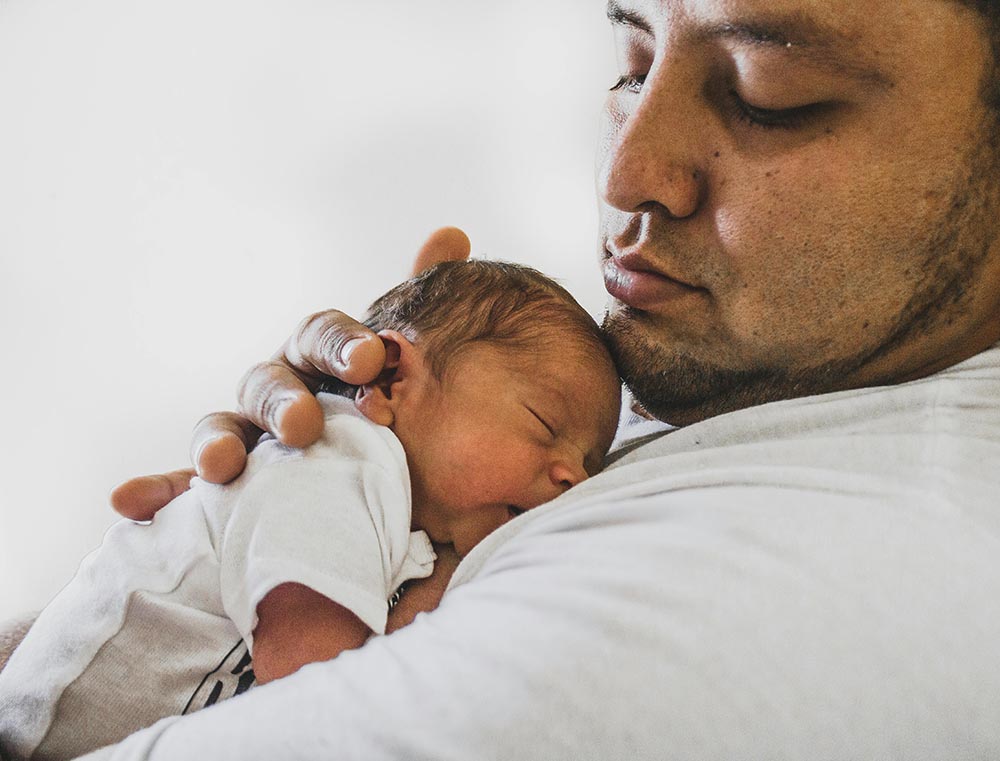1. Introduction
When deciding on a pediatrician, it is a good idea to ask some questions to assess whether they are the right fit for you and your baby. Find out about their experience in working with children, as well as their views on important topics such as breastfeeding, immunizations, and the use of antibiotics. You can also ask about the doctor’s availability for questions and concerns, both during and outside of office hours. If you have other children, ask about the doctor’s approach to caring for multiple children in one family. Take note of how the doctor and other staff members interact with you and your baby during your visit, as this can give you an idea of the quality of care that they provide.
Your baby’s doctor will be an important partner in ensuring his or her health and supporting development. As a parent, you will likely have many doctor visits during the first few years of your baby’s life, and it is important to choose a doctor that you trust and feel comfortable with. The American Academy of Pediatrics recommends that your baby’s doctor should be a board-certified pediatrician, meaning that the doctor has passed an exam certifying their knowledge in the field of pediatrics. The doctor should also have staff members that are knowledgeable about children’s health and development. This will help ensure that your baby’s doctor can provide the best possible care and support for your child’s development.
1.1. Significance of Early Healthcare for Babies
It is recommended that babies receive several check-ups within their first year of life to monitor their growth and development. These check-ups also provide an opportunity for parents to ask questions and address any concerns they may have about their baby’s health. Furthermore, babies who receive regular healthcare are more likely to grow into healthy children and adolescents. Research shows that early healthcare for babies contributes to long-term health in areas such as childhood obesity and chronic disease. In addition to the physical health benefits, choosing the right doctor for your baby can also support their emotional and social development. Researchers have found that strong parent-doctor relationships can lead to improved patient satisfaction and better health outcomes for children. By choosing a doctor that you trust and feel comfortable with, you can ensure that your baby will receive the best possible care.
Choosing the right doctor for your baby is one of the most important decisions you can make for their health and development. Babies require specialized healthcare to ensure they are growing and developing properly. Additionally, they are more at risk for illness and disease due to their underdeveloped immune systems. Regular check-ups with a pediatrician are vital to address any concerns and monitor your baby’s growth progress. By establishing care with a pediatrician early on, you are setting your baby up for a healthy future.
2. Qualities to Look for in a Pediatrician
A good pediatrician should be supportive and understanding while being knowledgeable and professional. They should be able to communicate clearly and effectively and make you feel comfortable in asking questions and expressing concerns regarding your child’s health. A good pediatrician should also have an established reputation and come highly recommended from other parents in the community. It is also important that the pediatrician’s office be easily accessible, with hours that accommodate your schedule and a location that is ideally close to your home. These are just a few of the qualities to look for in a pediatrician to help ensure that your baby receives the best possible care to support their healthy development.
When choosing a pediatrician, you’ll want someone who not only aligns with your thoughts on medical care but who also is supportive and understanding. You’ll be seeing a lot of this person over the next few years, so choosing someone who makes you feel comfortable and with whom you can establish good communication is key. It should be someone you can trust with your child’s health and overall well-being. There are many factors to consider when choosing a pediatrician, and these are just a few. Trust your instincts and don’t settle for less than you and your baby deserve.
2.1. Specialization in Pediatrics
One core aspect that sets pediatricians apart from other doctors is that they have special training on how to take care of babies, kids, and young adults. Specifically, they undergo at least four years of medical school and at least three years of residency training in pediatrics. After completing their training and passing exams, pediatricians are able to become certified specialists in the field. This is important for parents, as a certified pediatrician will have the knowledge and experience required to provide the best care for their children.
Pediatricians are doctors who manage the health of your child, including physical, behavioral, and mental health issues. They are trained to diagnose and treat childhood illnesses from minor health problems to serious diseases. In addition, pediatricians are also educated to provide preventive care for children and offer parenting advice in order to strengthen and support the family unit.
2.2. Experience and Reputation
You should also consider the reputation of the physician. Ask other parents which doctors they recommend and which they would avoid. You can often find reviews and comments about local pediatricians online as well. Keep in mind that sometimes a doctor’s style does not match with the parents’ own preferences, and negative reviews may be the result of such clashes rather than incompetent medical care. If there are specific complaints or warnings, try to assess whether or not those issues would apply to your child as well.
In addition to education and certification, you want to look at the level of experience a pediatrician has. An experienced physician can sometimes identify or solve a health issue more quickly or may be more adept in working with children. However, keep in mind that everyone has to start somewhere, so lack of experience should not be an immediate disqualification for a new pediatrician. Your child’s interaction at the doctor’s office is likely to be very different from your own adult experiences, but seeing children regularly is still important.
3. Key Factors in Choosing a Doctor for Your Baby
When it comes to choosing a doctor for your baby, there are several key factors to consider to ensure that you are making the right choice for your child’s unique needs.
Specialization and Experience: While all general pediatricians are trained to provide care for children from infancy through the teenage years, some have specific areas of interest or expertise. Consider if your child may have any special health concerns that would benefit from a doctor with a specific specialization, such as asthma, allergies, or developmental delays. Additionally, it can be comforting to seek out a pediatrician who has several years of experience in the field.
Personality and Communication Style: The relationship between a parent and their child’s doctor is a partnership in which both parties should feel comfortable discussing any concerns or asking any questions they may have. The doctor should be able to communicate clearly and effectively, and their personality should be a good fit with that of the parent.
Proximity and Office Hours: When choosing a doctor for your baby, consider the location of their office in relation to your home or work and the convenience of the office hours. Frequent visits are common during the first few months of a baby’s life, so it is helpful to have a doctor that is relatively close by and accessible.
Hospital Affiliation: Find out which hospital(s) the doctor is affiliated with in case your child ever needs to be admitted for a medical issue. Comfort with hospital staff and policies can make a difficult situation more manageable if the need for hospitalization ever arises.
Support Staff: In addition to the doctor, your interactions with the office’s nursing and administrative staff members will be frequent and ongoing. It is important to feel comfortable with and supported by the entire team that will be caring for your child.
Keep these factors in mind when making your decision, and remember that it is okay to meet with more than one doctor before making a final choice. The health and development of your baby is one of the most important responsibilities as a parent, and choosing the right doctor is a key step in ensuring that your child receives the best possible care.
3.1. Location and Accessibility
The first thing to consider when choosing your baby’s doctor is the location and accessibility of their office. You will be visiting the doctor frequently, particularly in the first year of your baby’s life. Babies get sick a lot, and they also have frequent check-ups to ensure they are growing and developing properly. A doctor’s office that is close to your home will make these frequent visits much more manageable. In addition, you will want to be sure that the office has convenient hours. Some doctors offer evening or weekend hours, which can be very helpful if your baby gets sick and you need to see the doctor on short notice.
Another factor to consider regarding the location of the doctor’s office is whether it is near your work. If you have a flexible work schedule, you may be able to take your baby to the doctor during the day if they get sick or need to be seen for a check-up. If the doctor’s office is near your work, it will be easier to do this. In addition, if you take public transportation to work, you will need to find a doctor’s office that is easily accessible by bus or train. Be sure to check the office’s policy regarding parking as well. Some doctor’s offices have a small parking lot for patients, while others require you to park on the street or in a nearby garage. If you have to pay for parking every time you visit the doctor, it can get expensive.
4. Building a Trusted Relationship with Your Pediatrician
Pediatricians are specially trained to care for the physical, emotional, and social health of children from birth through young adulthood. Choosing a pediatrician as your baby’s primary care doctor means that through the years of your child’s growth and development, you will be interacting with a doctor and office staff who have expertise in children’s health, but also have medical records already established. This is especially important if an unexpected medical issue should arise. You will have someone to turn to who knows your child. The building of a trusted relationship between parent, child, and doctor allows for better communication and therefore better medical care.
One of the most important relationships you will establish for your baby’s health, ongoing well-being and development is with a pediatrician. The journey of pregnancy, childbirth, and the care of your newborn is very personal. It is a time full of happiness, wonder, and sometimes a bit of anxiety as you strive to do what is best for your baby. As you ask questions, seek advice, and allow a pediatrician to examine, diagnose, and treat your child, a relationship and trust will build with that doctor. Over time, and as your child grows, that trusted relationship will expand and extend to conversations not only about your child’s physical health, but also about growth, development, and emotional well-being.
4.1. Communication and Trust
Trust is fundamental in the selection process of a pediatrician. Trust needs to be two ways – you need to trust the doctor’s knowledge, care, and advice, and the doctor needs to trust your observations and judgment about your baby because often a parent is the first to notice a change or a problem in a child. Unquestioning trust can set the stage for complacency and errors. Parents who take a more active partnership role with the doctor can contribute to increased improvement in the health outcomes of their children.
Clear communication is key to developing trust with your doctor. You should feel comfortable talking to your doctor and feel that your doctor listens and addresses any concerns that you have. While doctors are the experts in the medical treatment of your child, you are the expert of your baby. Sharing that expertise will allow you, your baby, and your doctor to form the best possible team for your child’s health and development.
5. Conclusion
In the first years of life, growth and development are so rapid, and children discover the world through a series of developmental milestones. Evaluate their level of experience and the quality of care provided in their clinic. Additionally, observe how they interact with and care for your baby to determine if they are the right fit. Your baby’s doctor is a key player in the journey of parenthood, so it is important to choose someone who will provide excellent care and support for both you and your baby.
In conclusion, the best doctor for your newborn baby is one who helps ensure his or her health, growth, and physical, social, and cognitive development. This requires not only addressing present complaints or concerns but also providing guidance and support for the long-term. When looking for the right doctor for your baby, consider pediatricians who are board-certified and have positive recommendations. Evaluate their level of experience and the quality of care provided in their clinic. Additionally, observe how they interact with and care for your baby to determine if they are the right fit. Your baby’s doctor is a key player in the journey of parenthood, so it is important to choose someone who will provide excellent care and support for both you and your baby.
Thrilled to see marvels? Step inside and uncover what makes us exceptional!
As we at Matney Pediatrics embark on a journey to nurture your child’s health, we invite you to experience the unparalleled difference of truly personalized pediatric care. In a world of walk-in clinics and hospitals where your child may only see a nurse practitioner or a general doctor, at Matney Pediatrics, your child will always see Dr. Matney. Practicing solo, with a dedicated staff that’s been by his side for many years, we offer a professional yet warm and kid-friendly environment where your family will feel truly at home.
Dr. Matney, a board-certified pediatrician, specializes in baby, toddler, and child development. His extensive experience in diagnosing and treating ADD/ADHD, autism spectrum disorders, and other developmental challenges sets us apart. His commitment extends beyond the clinic, as he personally attends to his patients in the hospital and provides newborn care at Victor Valley Global Medical Center in Victorville.
Parenthood is filled with questions, especially on sensitive topics like vaccinations and newborn male circumcision. Dr. Matney is here to provide the latest information, answer all your questions, and ensure your child is protected and you are confident in your decisions.
Are you ready to join a practice where your child’s health is nurtured with exceptional care and dedication? Connect with us at Matney Pediatrics and take the first step towards a brighter, healthier future for your child. Discover the unique peace of mind that comes with knowing your child is in the caring, expert hands of Dr. Matney and his devoted team.
References:
Wallenborn, Jordyn T., et al. “Breastfeeding, physical growth, and cognitive development.” Pediatrics 147.5 (2021). binasss.sa.cr
Health Organization, W. “Improving early childhood development: WHO guideline.” 2020. google.com
Kolker, Sabrina, et al. “Pregnant during the COVID-19 pandemic: an exploration of patients’ lived experiences.” BMC Pregnancy and Childbirth 21 (2021): 1-13. springer.com
Health Organization, W. “Investing in our future: A comprehensive agenda for the health and well-being of children and adolescents.” 2021. who.int
Lanjekar, P. D., Joshi, S. H., Lanjekar, P. D., and Wagh, V. “The effect of parenting and the parent-Child relationship on a Child’s cognitive development: a literature review.” Cureus, 2022. nih.gov
Keeley, B. “The State of the World’s Children 2021: On My Mind–Promoting, Protecting and Caring for Children’s Mental Health..” 2021. ed.gov
Kilag, Osias Kit T., et al. “ICT Integration in Primary School Classrooms in the time of Pandemic in the Light of Jean Piaget’s Cognitive Development Theory.” International Journal of Emerging Issues in Early Childhood Education 4.2 (2022): 42-54. ut.ac.id
Qiao, Jie, et al. “A Lancet Commission on 70 years of women’s reproductive, maternal, newborn, child, and adolescent health in China.” The Lancet 397.10293 (2021): 2497-2536. sciencedirect.com
Whitman, Amelia, et al. “Addressing social determinants of health: Examples of successful evidence-based strategies and current federal efforts.” Off Heal Policy 1 (2022): 1-30. hhs.gov
Haugan, G. and Eriksson, M. “Health promotion in health care–vital theories and research.” 2021. oapen.org
Keywords: choosing the right baby doctor, importance of pediatric care, baby’s health and development, pediatrician selection, trusted healthcare provider for infants, developmental milestones monitoring, compassionate care for babies, expert pediatric advice, ensuring infant well-being, doctor-patient relationship for children, parental guidance in healthcare, specialized baby healthcare, preventive care for infants, growth and development check-ups, impact of a good pediatrician.






